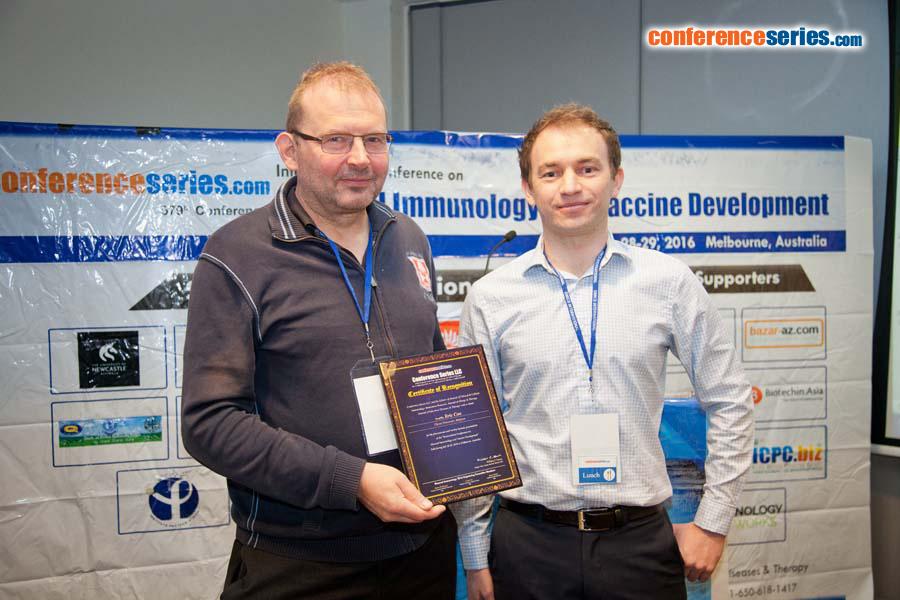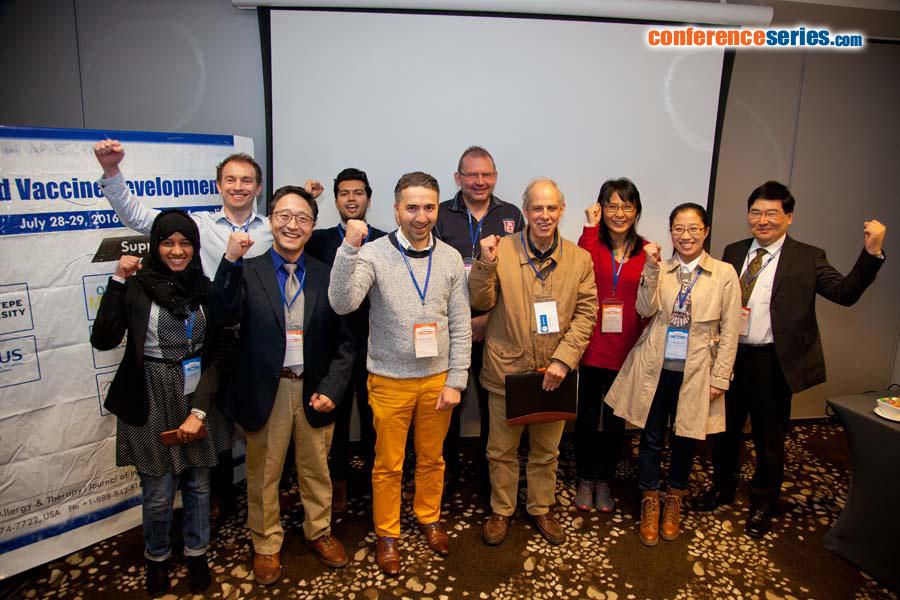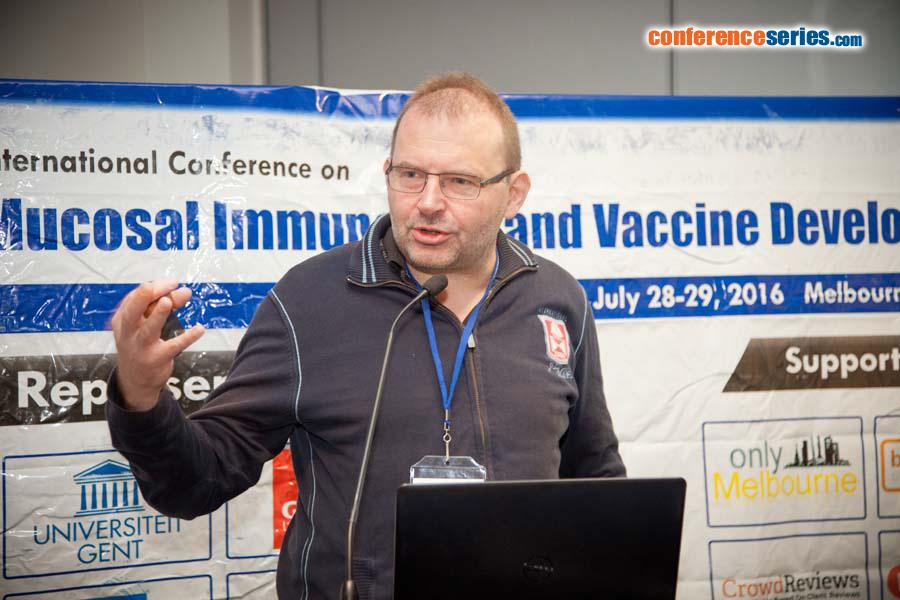
Eric Cox
Director, Professor, UGent, Belgium
Title: Heat-labile enterotoxin enhances small intestinal colonization with F18ac+ verotoxigenic E. coli
Biography
Biography: Eric Cox
Abstract
Enterotoxigenic E. coli (ETEC) play a major role in post-weaning diarrhea in pigs. Upon weaning, F4+ETEC rapidly colonize the small intestinal mucosa and produce LT enterotoxin which enhances fluid secretion leading to clinical signs. F18+ verotoxigenic E. coli (VTEC) mainly cause edema disease, which peaks the second week post-weaning. We postulated that exposure to LT, even in subclinical concentrations, changes the intestinal mucosa, enhancing colonization with F18+VTEC. Whereas 10 µg LT (6 hours in 20 cm long small intestinal segment) was the lowest dose consistently inducing fluid secretion (56±70 g fluid/cm2 mucosa) and removing some mucus (76±7% mucus coverage), 30 µg had a clearer effect (60±7%; control segments 89±5%). Inoculating the loops with 108 CFU F4ac+ETEC (LT+STa+STb+) induced a comparable fluid loss (356±133 mg fluid/cm2) and mucus coverage (68±8%). To analyze the effect of LT in vivo, the small intestinal tract of 4-week-old piglets was injected at 5 sites with different doses of LT, of which 350 µg showed intermediate fluid and mucus loss and 250 µg had no effect. Both latter doses were injected intraluminal in 7 and 4 pigs, respectively, to see if LT could enhance colonization of F18ab+VTEC strain (STx2e+) (1011 CFU in 10 ml PBS, 6 hours later, intragastrically) in comparison with placebo injected animals (n=7). Either 250 µg or 350 µg LT prolonged the duration of VTEC excretion and significantly increased the VTEC colonization between 4 and 7 days after the inoculation, supporting our hypothesis and the importance of vaccination against LT.rn
Speaker Presentations
Speaker PDFs
Speaker PPTs Click Here





